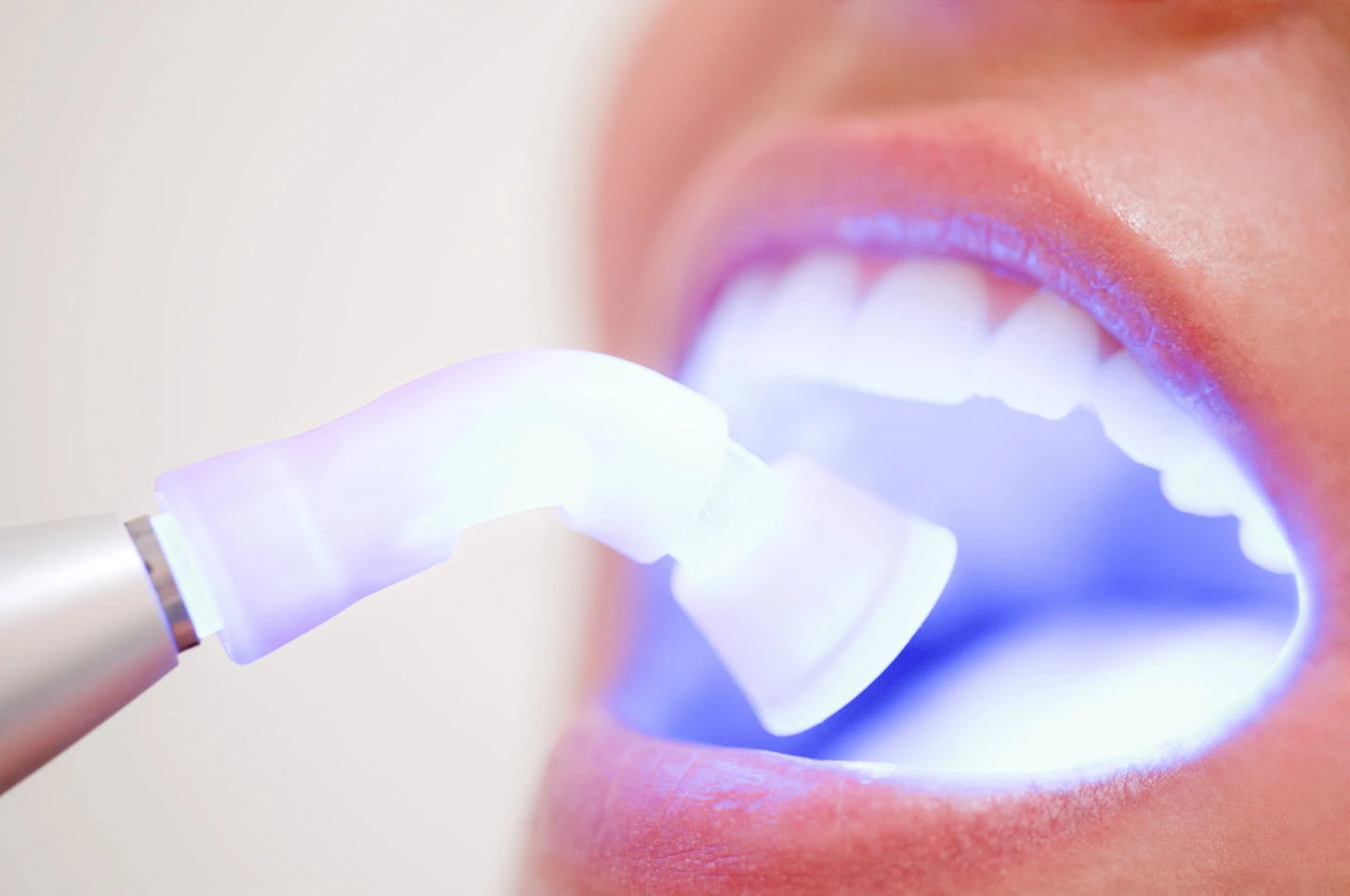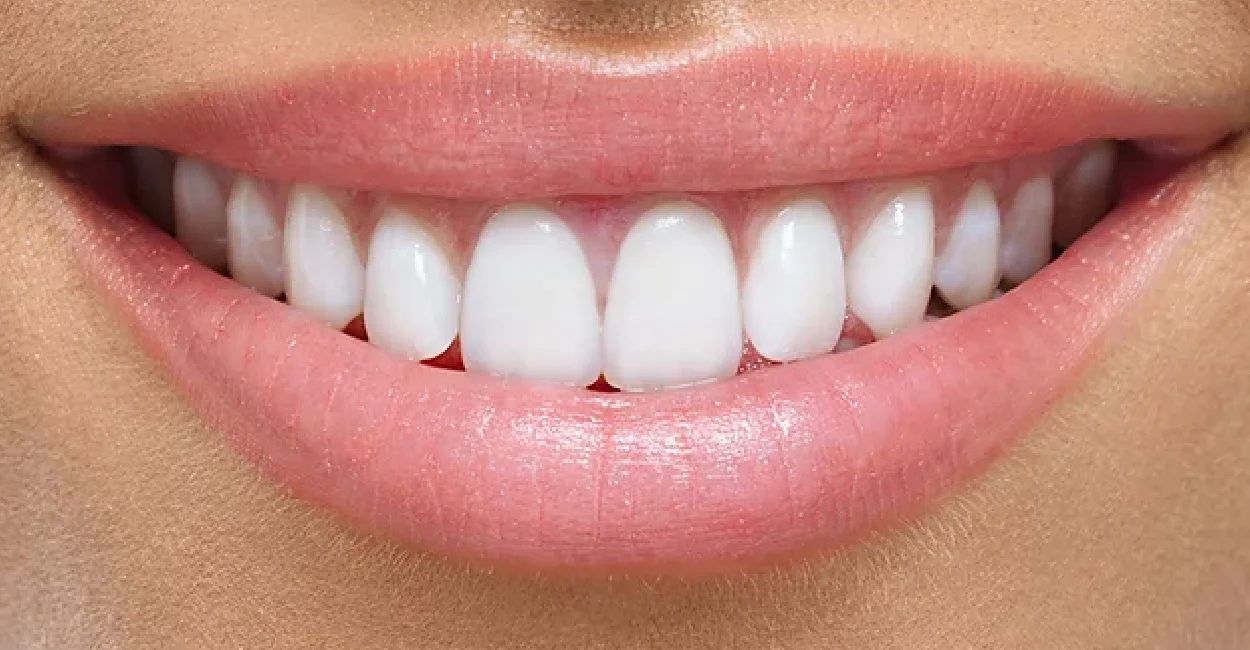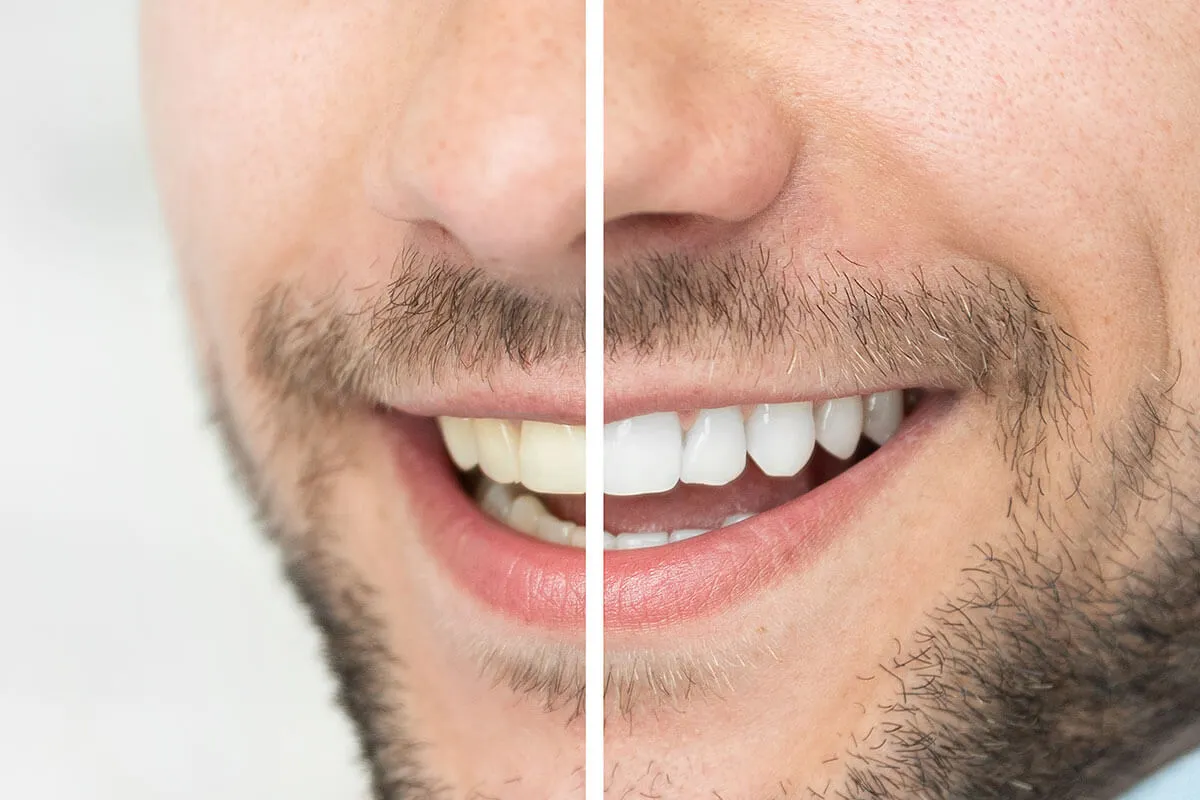- Treatments / Cleaning & Whitening
Cleaning & Whitening

Teeth Whitening in Turkey
You can tell a lot about yourself just by the way you smile. The key to a stunning smile is, having teeth that are whiter and brighter. Today, many people are concerned with the appearance of their smiles and turn to teeth whitening treatments to get a captivating grin.
Although there are some bleaching and whitening procedures you can perform at home, these procedures frequently end in disappointment. Due to this, professional treatments are the best option if you want quick, secure, and effective results. For various reasons, it is now possible to whiten and brighten stained teeth with a quick procedure using teeth whitening in Turkey.
What Is Teeth Whitening?
More people than ever are willing to pay for whiter, brighter teeth. There are several causes of tooth discolouration or staining. Your teeth are bleached to whiten them during teeth whitening. People who have yellow-coloured teeth respond best.
Almost everyone who chooses a teeth whitening method notices a moderate to significant improvement in the brilliance and clarity of their smile. Some beauty salons provide teeth whitening services, but doing so without a dentist’s presence is against the law and could endanger your oral health. An oral health therapist, dentist, or dental hygienist would be best suited to handle this treatment.
Does Tooth Whitening Have An Impact On Crowns, Veneers, Or Fillings?
Many patients with crowns and fillings are concerned about the effects of teeth whitening. Before attempting a whitening procedure, you might consult your cosmetic dentist if you have porcelain veneers, crowns, or white fillings and are worried about tooth discolouration or staining. The truth is that tooth-coloured fillings and crowns cannot be whitened by any dental procedure, whether carried out in a dental office or at home.
Most tooth-coloured fillings are made of resin composite materials resistant to whitening procedures. The materials used to create crowns can be resin or ceramic/porcelain and are also resistant to bleaching. The material of your tooth-coloured crown or filling does not react with the peroxide used to whiten teeth, unlike your natural teeth. Even if you whiten the rest of your teeth, they cannot be whitened and will always be the same shade.
Crowns and veneers can eventually lose their lustre despite not being able to absorb stains like natural tooth enamel can. Patients can use mild polishing toothpaste at home to appear whiter.

Is Teeth Whitening Safe?
According to a study, 1 in 4 adults refrain from smiling because of their oral and dental health. A white, radiant smile is frequently linked to self-assurance, looking younger, and feeling more attractive. Although tooth whitening is typically considered safe, some people are concerned that the chemicals may weaken their teeth. If done by a licensed dental professional, bleaching is completely safe. However, anyone else wouldn’t have the appropriate education or experience and might permanently harm your teeth and gums. You might not be a good candidate for teeth whitening if you have receding gums, cosmetic procedures already completed, decayed or unrestored teeth, dry mouth, or poor oral hygiene. Nevertheless, most of these issues would be discovered during a dental visit, so scheduling a checkup before teeth whitening makes sense.

What Is the Difference Between Whitening and Bleaching?
Although “bleaching” and “whitening” are frequently used interchangeably, they have different meanings. It is more important to define the terms’ usage in dental offices and product marketing than their actual definitions to distinguish between them. Bleaching is one type of whitening, whereas “whitening” is a catch-all term.
When the whiteness of a tooth is improved beyond its natural color, it can be called as “bleaching” tooth. This only applies to products containing hydrogen peroxide or carbamide peroxide, the active ingredient in bleach. On the other hand, Whitening is a term used to describe removing debris and stains from teeth to restore their natural colour. Therefore, any product used to clean teeth qualifies as a whitener. Naturally, even when describing products that contain bleach, the term “whitening” is more frequently used than “bleaching” because it sounds better.
Is Teeth Whitening Permanent?
Tooth whitening is not a permanent solution. Your particular situation will determine how long your results last, but teeth whitening results can generally last anywhere from a few months to three years. The durability of your treatment will also depend on how well you care for your newly whiter smile and the calibre of your daily oral hygiene regimen. The secret to maintaining your new brilliant smile is the aftercare regimen recommended by your dentist. You can do the following things to make the results of your teeth-whitening procedure last longer:
• At least twice a day, you should floss and brush your teeth.
• Consult your dentist frequently for checkups.
• Avoid eating and drinking things that will stain and darken your teeth.
• Reduce or stop smoking.
• Drink water more often.

